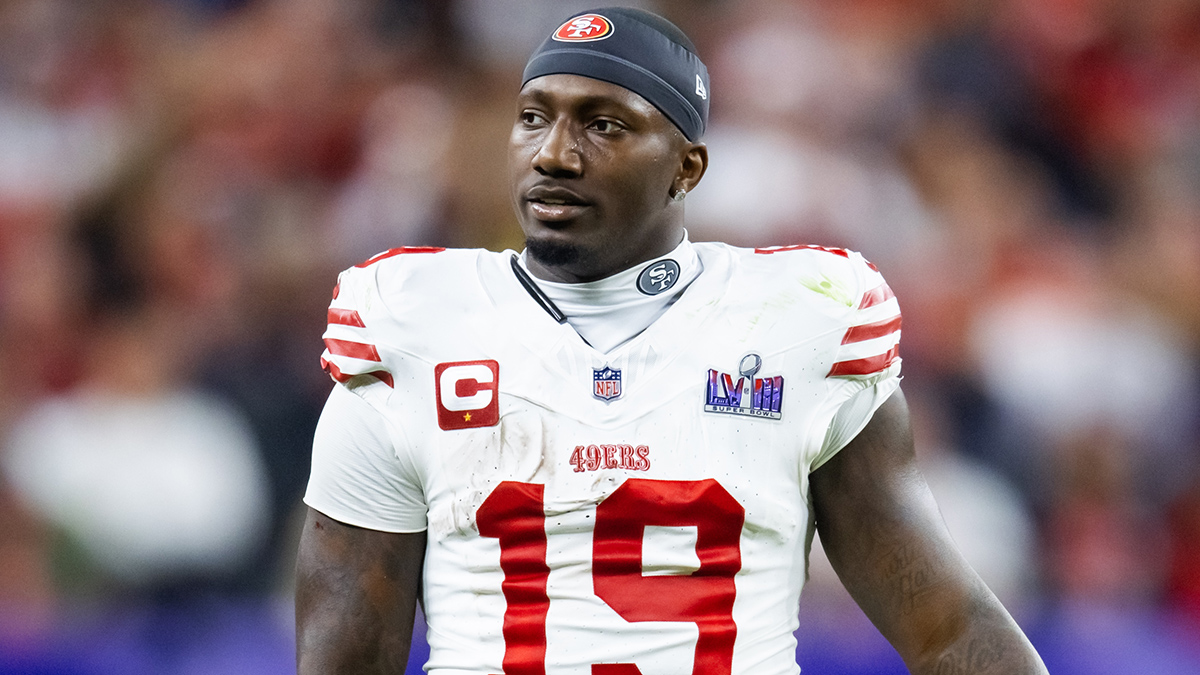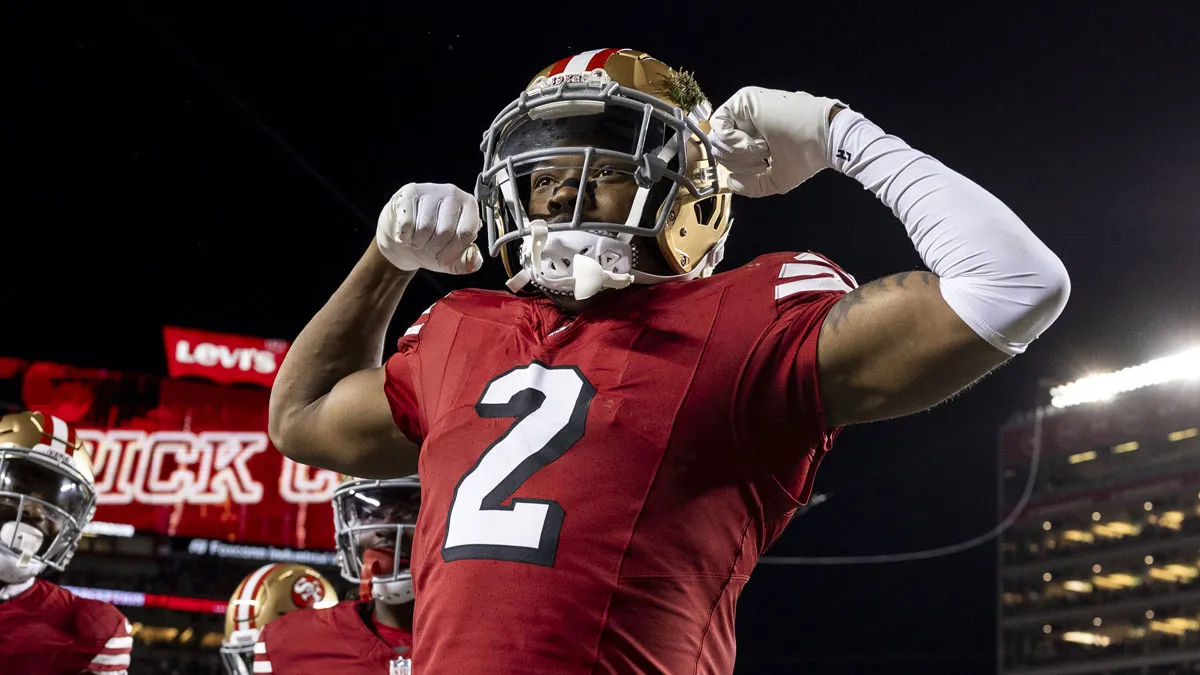SANTA CLARA — Six years ago, Colin Kaepernick, Eric Reid and others took a knee to protest racial inequality and police brutality.
Even with the perspective of time, the protest still means different things to different people. And while history largely remains unwritten, there is no denying it was a significant event in the merging of sports and society.
Now, the protest is commemorated at the 49ers Museum in an exhibit that opened this week at Levi’s Stadium.
Stay in the game with the latest updates on your beloved Bay Area and California sports teams! Sign up here for our All Access Daily newsletter.
“It’s important that a moment like Kaepernick’s protest is included because it’s something that most of the people who come to the museum, at least for the next couple of years, will have lived through,” said Dr. Damion Thomas of the National Museum of African American History and Culture.
“So part of what you have to show people is that these are ongoing conversations, that these issues and social issues persist.”
The larger exhibit, entitled, “The Long Game, Sports & Social Justice in the Bay Area,” examines five stories that shed light on sexism, housing and racial discrimination, including:
-- Willie Mays’ fight against housing discrimination in San Francisco;
San Francisco 49ers
Find the latest San Francisco 49ers news, highlights, analysis and more with NBC Sports Bay Area and California.
-- Tommie Smith and John Carlos’ silent 1968 protest on the Olympic podium in Mexico City;
-- The diversification of professional sports team leadership starting with Bill Russell as the first post-segregation Black head coach of a major professional sports team;
-- Brandi Chastain’s goal that won the United States the 1999 Women’s World Cup in the broader context of Title IX and gender issues.
Dr. Thomas was a member of the seven-person “Long Game” committee, which includes former 49ers players Keena Turner and Antoine Bethea, and sociologist and civil rights activist Dr. Harry Edwards.
The exhibit concludes with “Colin Kaepernick’s Impact and Influence.”
Kaeperick’s protest was polarizing during a politically charged time. Many tried to frame Kaepernick’s actions as anti-U.S. flag and anti-military.
“I’m not anti-American,” Kaepernick said in 2016. “I love America. I love people. That’s why I’m doing this. I want to help make America better.”
Kaepernick donated $1 million to organizations tackling civil rights issues. The 49ers immediately pledged $1 million toward human rights groups and have continued to make sizable contributions.
Kaepernick and the 49ers parted ways after the 2016 season. He was never signed to another NFL contract. His career was over before the age of 30.
“When people come to this exhibition, what I hope they take away is that sports matter, and they matter far beyond the playing field,” Dr. Thomas said. “The aim of this exhibition is to inspire people. We want people to see the change, the profound change is possible, but it takes people willing to take stands.
“It takes people willing to stand up against injustice. We hope people leave inspired and encouraged to know that things can get better.”
Kaepernick’s protest generally has evolved to be seen as more heroic over time. But there is no easy answer to how history will look back at the stance he took from taking a knee.
RELATED: Williams offers poetic metaphor on feelings about Commanders
“That remains to be determined,” Dr. Thomas said. “It is really going to be determined by how much social progress we see.
“We could look back and say this was an incredibly transformative moment or we could look back and say, ‘Wow, that was interesting.’ How we move and change as a society will determine how much that moment is remembered.”


